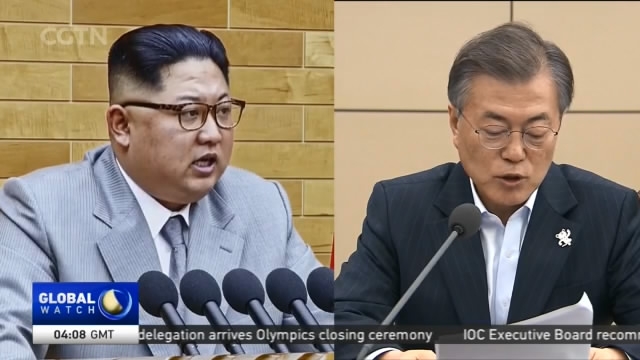
13:28, 25-Feb-2018
Olympic Diplomacy: Inter-Korean relations warm as US continues pushing denuclearization

This February in PyeongChang, spotlights are not only on the athletes, but also the big story of the obviously warming inter-Korean relationship. Many, including South Korea, have referred to it as a "breakthrough". But not everyone is happy about it. Let's take a look at the thaw during the Winter Games.
The beginning of a new year has seen a fast forward warming process. Pyongyang and Seoul re-opened talks that had been closed for over two years, in less than 10 days.
On January 2nd, South Korea proposed high-level talks in response to DPRK's leader Kim Jong-un's offer to send delegations to PyeongChang.
January 3rd, the cross-border hotline reopened, and talks were confirmed two days later.
January 9th, talks at the Peace House on the South's side of the Panmunjom truce village, paved the way.
On February 9th, the high-level DPRK delegation was in the Olympic opening ceremony. Kim Yo Jong, sister of DPRK leader Kim Jong Un, was there. South Korean President Moon Jae-in shook hands with the DPRK's top legislator Kim Yong Nam. The two country's joint hockey team made its debut under the unified flag.
On February 10th, Moon met and had lunch with the DPRK delegation at the Blue House. Kim Yo Jong delivered Kim Jong-un's letter on improving ties, and relayed her brother's invitation to Moon for a visit. Moon said he would "create an opportunity". The next day, Moon watched the second performance of the DPRK art troupe with the North's delegation in Seoul.
On February 12th, Kim Jong Un expressed his thanks to the South while meeting with the returned DPRK delegation. He said he was impressed by the warm welcome to the delegation and appreciates the kind-hearted reception. While inter-Korean relations were warming up, the US was trying to cool them down.
On February 10th, US Vice President Mike Pence's scheduled meeting with DPRK officials in South Korea was canceled at last minute. He had previously condemned Pyongyang for human rights abuse, and Washington had imposed new sanctions. The same day, Pence again called for denuclearization.
On the 14th, Pence said the US was open to talks with the DPRK, but sanctions would stay until Pyongyang abandoned its nuclear program.
On February 23rd, President Trump reaffirmed his campaign of "maximum pressure". Washington announced its largest instalment of economic sanctions on Pyongyang.

SITEMAP
Copyright © 2018 CGTN. Beijing ICP prepared NO.16065310-3
Copyright © 2018 CGTN. Beijing ICP prepared NO.16065310-3